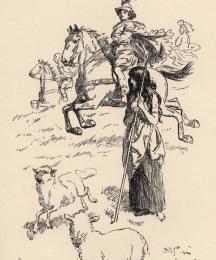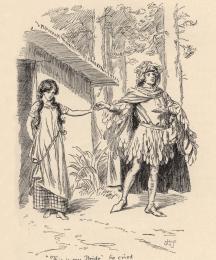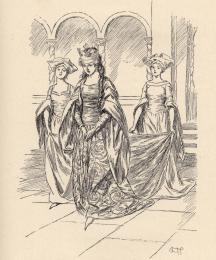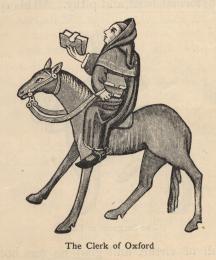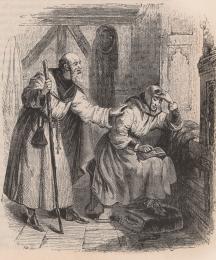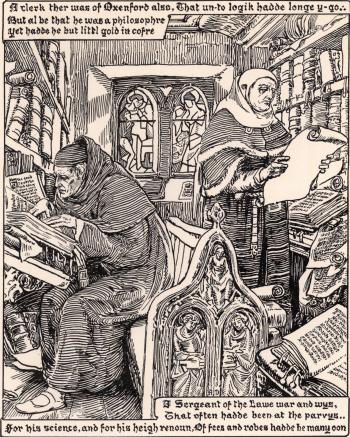
"A clerk ther was of Oxenford also,
That unto logyk hadde long ago.
As leene was his hors as is a rake,
And he nas nat right fat, I undertake,
But looked holwe, and therto sobrely.
Ful thredbare was his overeste courtepy,
For he hadde geten hym yet no benefice,
Ne was so worldly for to have office.
For hym was levere have at his beddes heed
Twenty bookes, clad in blak or reed,
Of Aristotle and his philosophie
Than robes riche, or fithele, or gay sautrie." (ll. 285-296)
The Clerk tells the tale of Griselda, a woman who is the model of patient endurance even as her husband deliberately tests her by pretending to have her children killed and dismissing her.
That unto logyk hadde long ago.
As leene was his hors as is a rake,
And he nas nat right fat, I undertake,
But looked holwe, and therto sobrely.
Ful thredbare was his overeste courtepy,
For he hadde geten hym yet no benefice,
Ne was so worldly for to have office.
For hym was levere have at his beddes heed
Twenty bookes, clad in blak or reed,
Of Aristotle and his philosophie
Than robes riche, or fithele, or gay sautrie." (ll. 285-296)
The Clerk tells the tale of Griselda, a woman who is the model of patient endurance even as her husband deliberately tests her by pretending to have her children killed and dismissing her.
Bibliography
Chaucer, Geoffrey. The Riverside Chaucer . Ed. Larry D. Benson. 3rd ed. Boston: Houghton, 1987.
Anne Anderson (1874 - 1930)
Edward Coley Burne-Jones (1833 - June 16, 1898)
Edward Henry Corbould (1815 - 1905)
Sir W. Russell Flint (1880 - 1969)
Mrs. H. R. Haweis (1848 - 1898)
W. Heath Robinson (1872 - 1944)
John Saunders (1811 - 1895)
Hugh Thomson (1860 - 1920)
Anne Anderson (1874 - 1930)
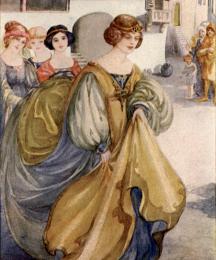
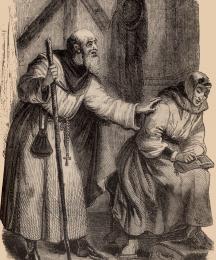
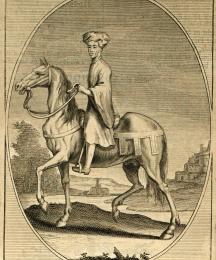
Edward Coley Burne-Jones (1833 - June 16, 1898)
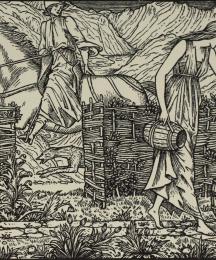
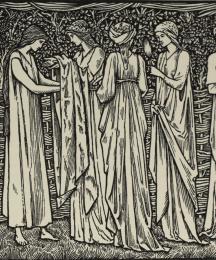
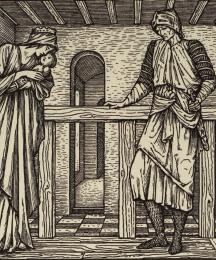
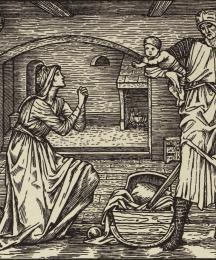
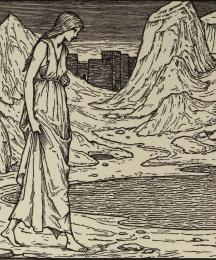
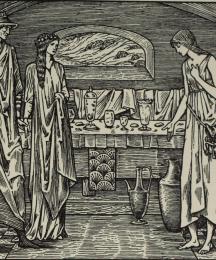
Edward Henry Corbould (1815 - 1905)
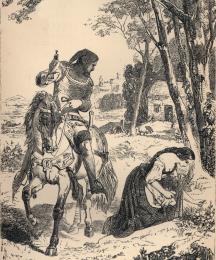
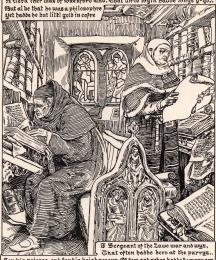
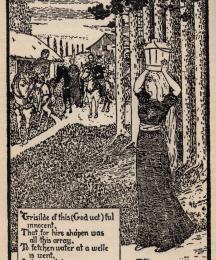
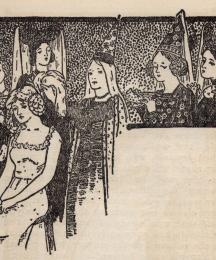
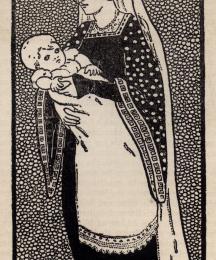
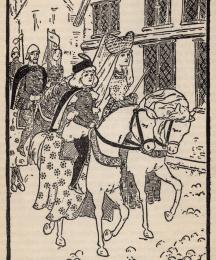
Sir W. Russell Flint (1880 - 1969)
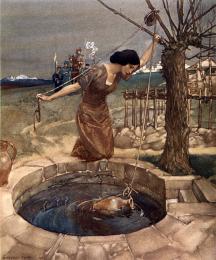
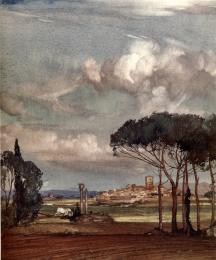
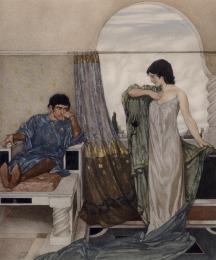
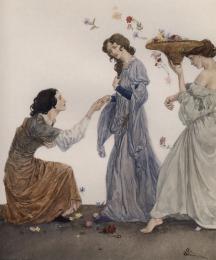
Mrs. H. R. Haweis (1848 - 1898)
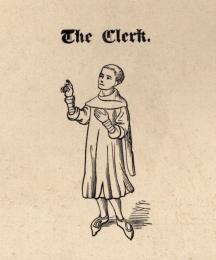
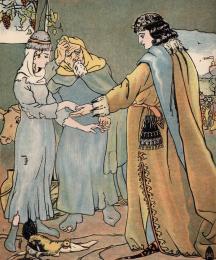
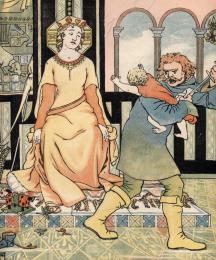
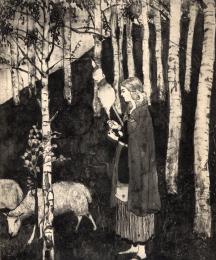
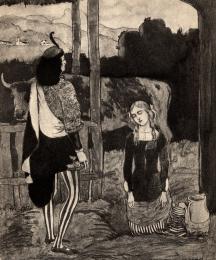
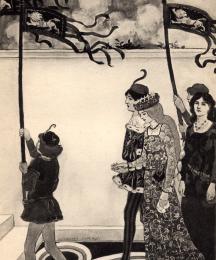
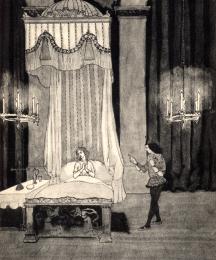
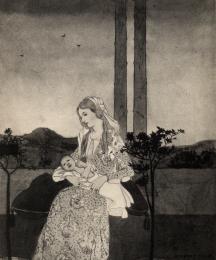
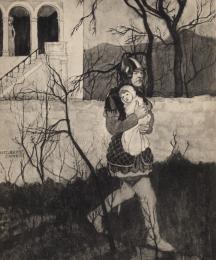
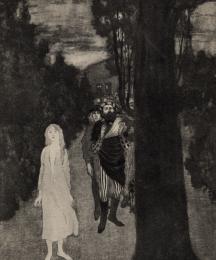
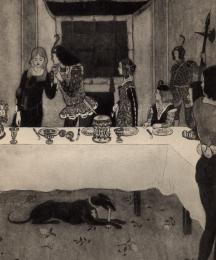
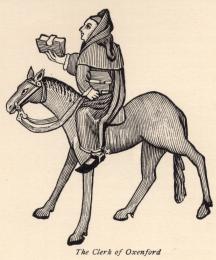
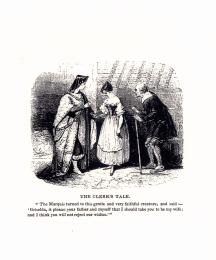
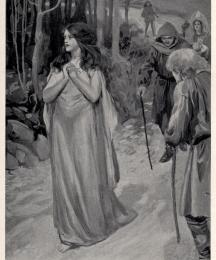
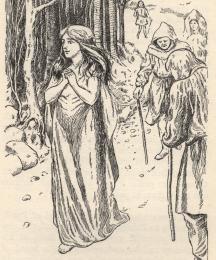
W. Heath Robinson (1872 - 1944)
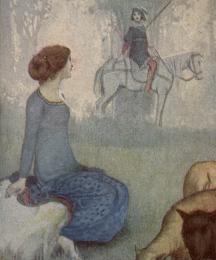
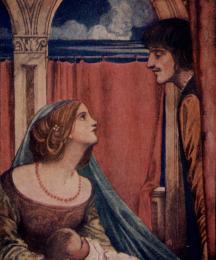
John Saunders (1811 - 1895)
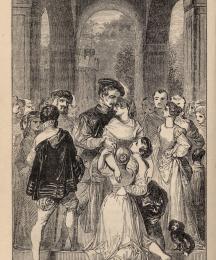
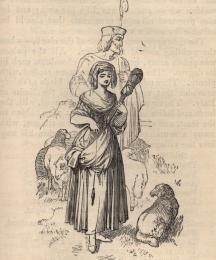
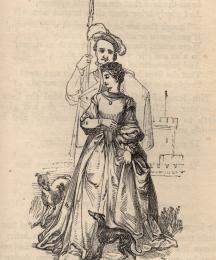
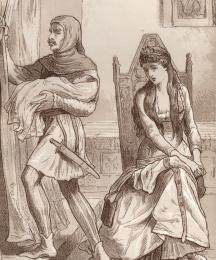
Hugh Thomson (1860 - 1920)
